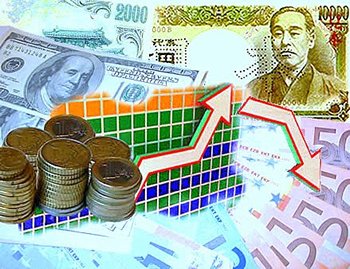A round table discussion warns of new debt crises and the challenges these will pose to the Sustainable Development Goals if the world does not agree on a new, more effective legal mechanism to restructure sovereign debt. Civil society urges UNCTAD to continue its work on the issue.
 The risk of sovereign external debt crises must be treated as a collective challenge to inclusive and sustainable development, affirmed UNCTAD Secretary General Mukhisa Kituyi as he opened a high-level discussion on debt issues on the opening day of the sixty-second Trade and Development Board, UNCTAD's highest decision-making body.
The risk of sovereign external debt crises must be treated as a collective challenge to inclusive and sustainable development, affirmed UNCTAD Secretary General Mukhisa Kituyi as he opened a high-level discussion on debt issues on the opening day of the sixty-second Trade and Development Board, UNCTAD's highest decision-making body.
Dr. Kituyi stressed that the resurgence of debt crises, even in countries that had limited external debt, reiterates the need for an inclusive workout mechanism that goes beyond the current provisions of ad hoc negotiated settlements, which lack clear rules.
He said: "If there is one thing that we have learned from the experience of Greece, for example, it's not that they've had a challenge with debt, but that postponing dealing with a challenge of debt as it grows represents a major threat to stability, reversals in economic and social gains, and negates the very pursuit of inclusive prosperity that we have considered a core of our collective agenda for the next fifteen years".
The panel agreed with the Secretary-General on the urgent need for action, warning that current trends in the global economy and financial markets may lead to new debt crises in more countries. These challenges include low prices in commodity markets, slow growth in international trade and the expected decision by the United States Federal Reserve to eventually raise interest rates.
The timely discussion brought together governments, academia and civil society one week after the United Nations General Assembly adopted a resolution on principles to guide sovereign debt restructuring processes. The panel highlighted the historic nature of the resolution but urged the international community to move forward and called on UNCTAD to contribute to the follow-up process.
Professor Gary Dymski of the University of Leeds (United Kingdom) expounded on the significance of rising private debt levels in the developing world. "History shows that when trouble occurs private debt turns into public debt", he said. Public debt, in turn, can hinder a government's ability to invest in society. He explained that sovereign debt affects developing countries in particular because of the dependence on public investment in these countries.
Eric Toussaint, a founder of the Committee for the Abolition of Third World Debt, Belgium, affirmed that the Argentine "vulture funds" crisis and the current events in Greece demonstrate the need for further action beyond non-binding international principles. He argued that the United Nations is the correct forum to discuss sovereign debt issues and called on UNCTAD to play a role in moving the discussions forward towards concrete solutions.
Many delegations agreed with the panellists that the United Nations is the appropriate forum to discuss these issues, whereas some delegations challenged this assertion, stating that the discussion belongs primarily in other bodies, such as the International Monetary Fund (IMF).
An alternative view came from civil society. Jubilee USA agreed that the IMF should continue to address the issue of sovereign debt. But they also concurred that these issues should be discussed in the United Nations and urged UNCTAD to continue "a robust conversation on the issue that could lead to global policy change". Jubilee USA asserted that the necessary technical expertise exists within the United Nations and recalled that UNCTAD served as the main consensus builder for the multilateral debt relief initiative.
The round table discussion was organized as part of the high-level segment of the annual session of the Trade and Development Board.
The second part of the segment focused on the role of women as catalysts for trade and development. Three themes dominated the discussion: the impact of trade liberalization on women, women as engines of rural development and women's economic empowerment in the post-2015 development agenda. The panel, which included contributions from civil society, agreed that women can be catalysts for trade and development, but only if socio-cultural and regulatory obstacles are removed. The role of women in micro, small and medium-sized enterprises was highlighted.
The annual session of the Board convenes for two weeks every September and brings together UNCTAD member States and experts from government, academia, multilateral organizations and civil society to discuss persisting and emerging trade and development challenges. The sixty-second session opened on 14 September 2015.


